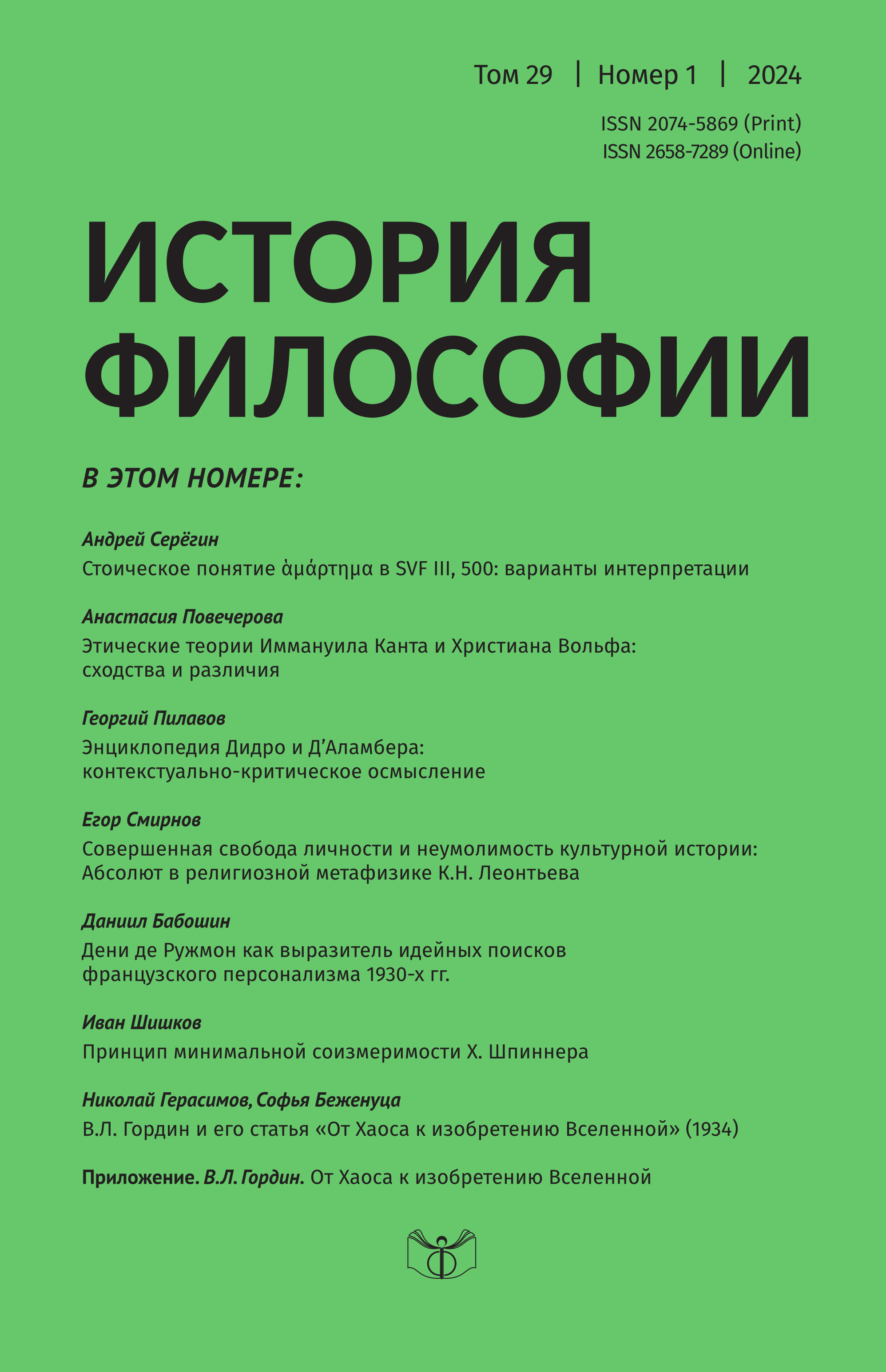The Stoic Notion of ἁμάρτημα in SVF III, 500: Alternative Interpretations
DOI:
https://doi.org/10.21146/2074-5869-2024-29-1-5-16Keywords:
ancient ethics, disjunction, hamartema, kathekon, stoicismAbstract
The paper offers a detailed analysis of the Stoic notion of ἁμάρτημα (morally wrong activity) as defined in SVF III, 500: “that which is done contrary to right reason, or that in which something appropriate has been omitted by a rational animal”. The author seeks to clarify how this formulation relates to alternative interpretations of early Stoic ethics, one of which suggests that appropriate acts may also fall under the notion of ἁμάρτημα, while another implies that ἁμάρτημα extensionally coincides with inappropriate acts. The author demonstrates that, for a number of reasons, primarily the presence of the conjunction “or” in the text, this definition is highly ambiguous and more or less compatible with both of these interpretations, the first of which seems preferable in itself on the basis of much other evidence.

